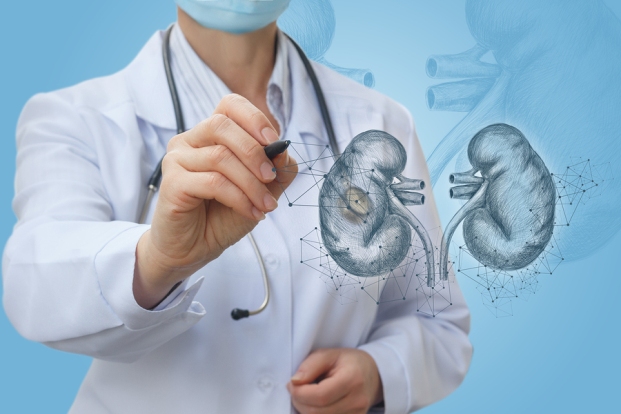Chronic Kidney Disease - Overview
Apr 19, 2022
All of us have two kidneys each in our body which perform very important functions for us. These include excretion of metabolic waste products, regulation of water and electrolyte and acid base balance in our body. The kidneys also control our blood pressure and secrete a few hormones.

The occurrence of kidney disease, known as chronic kidney disease (CKD) when it is irreversible and permanent is increasing worldwide and has become a global health concern. About 11 to 13 percent of the world population is suffering from it out of which about three fourth have early or mild disease and remaining one fourth have relatively advanced disease. In India over 1.5 lac new cases of CKD are detected every year and this number is increasing by the day.
Common Causes of CKD
The two most important causes of this increase worldwide are increase in patients of diabetes and blood pressure which are the two most important causes of CKD. Other common causes of CKD include some hereditary and congenital diseases, kidney stones, recurrent urinary tract infections and increased intake of pain killer drugs.
Early symptoms of CKD include a feeling of less energy and tiredness, puffiness around eyes, swelling of feet and ankles and a feeling to urinate more often at night. Later one may have nausea, vomiting, pallor, decreased urine output and breathlessness. Anyone having any of these symptoms should be evaluated by a doctor and if kidney disease is confirmed a nephrologist should be consulted so that proper treatment can be taken early and progression of the disease can be slowed or stopped.
Prevention of Kidney Disease
We can maintain good healthy kidneys and prevent kidney disease by keeping a meticulous control of our blood sugar and blood pressure. One should do regular exercise, maintain an ideal body weight and have a healthy fluid intake. Smoking and alcohol consumption should be avoided. One should avoid self-medication and prolonged use of pain killer drugs. Extremes of exercise in hot conditions and consumption of muscle bulk enhancing products should be avoided.
Patients of diabetes and hypertension, all healthy individuals with a history of kidney disease in the family and all elderly above the age of 65 years should be regularly screened for the presence of kidney disease and timely action should be taken if required.







